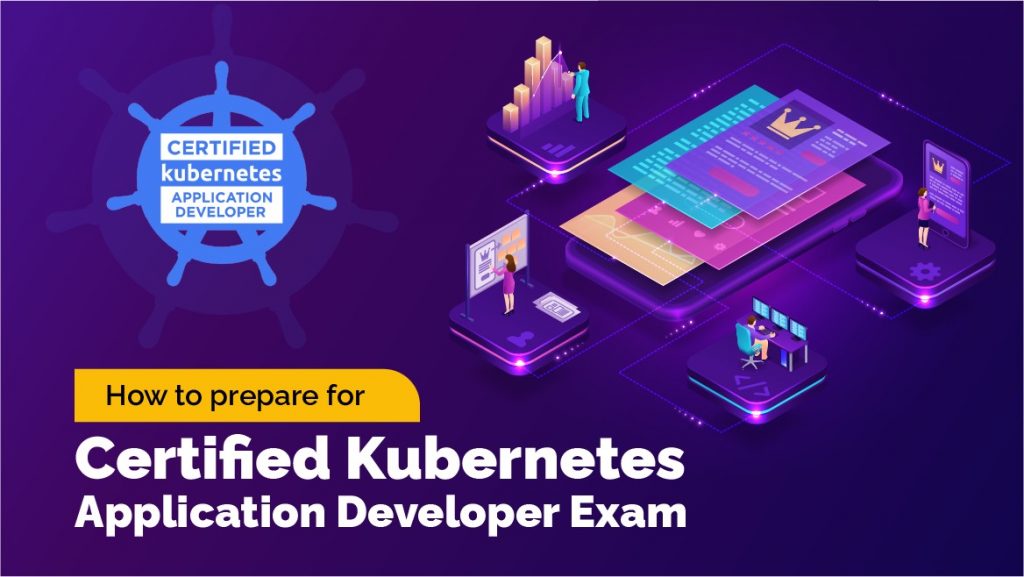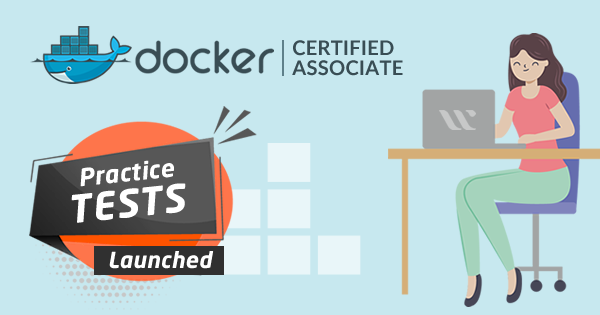While going through the process of preparing to take the Kubernetes Application Developer certification, it’s common to run into a lot of doubts, especially if you don’t have any prior experience with the technology or you struggle to make sense of how things are done. When preparing for exams like this one, there is usually quite a bit of information to learn overall before passing will be an option.
In the field of DevOps and Cloud development work, passing these kinds of certifications is strongly encouraged to gain access to better job opportunities as employers seek people with substantial expertise in such areas.
If you’re looking to take the CKAD exam and you suspect it will be challenging (aren’t they all?), here are some pointers to help you get started. Make sure you pay close attention to the approach and tips shared by Whizlabs in this article!
How to Prepare for Certified Kubernetes Application Developer (CKAD) Exam)?
As a first step Get familiar CKAD_Curriculum, the current version is 1.22. The exam tests your ability to design, develop, and deploy application on Kubernetes Environment. You should be able to configure network and security, maintain the application in Kubernetes environment. Almost 65% of syllabus is on design, build, configure and deploy skills, rest is maintenance. I have explained the syllabus break up, best resources and other details about the exam for your reference.
Best resources to prepare
Are you searching for the most popular courses in the realm of Certified Kubernetes Application Developers Certification? If yes, then you should definitely pick up the following two courses.
The first one is by Mumshad Mannambeth, found on a Udemy & the second is by WhizLabs, created in collaboration with the CNCF Foundation. Students go for these courses because of the sheer number of recommendations it has received from others who have passed with flying colors over their other competitors. So here’s a heads up – take these two courses, and study hard.
Give special attention to the basic commands and concepts. It’s better to practice basics and simple concepts over and over again until you’re absolutely comfortable before moving on, rather than rushing into advanced concepts that can leave you baffled. The exam isn’t too difficult for someone with clarity of concepts & a lot of practice.
Basic details about the exam
Candidates have to take the exam in an online, proctored environment. The exam will include various performance-based tasks such as the creation of Kubernetes objects, debugging issues in deployed objects, etc. The total duration of the exam is 2 hours, and in order to register for the exam, candidates will have to pay $375 as a fee that also comes with one free retake if they should happen to not pass the first time.
| Exam format | Online, proctored |
| Total Duration | 2 hours |
| Exam fee | $375 |
| Retake | Included |
| What is covered | various performance-based tasks such as the creation of Kubernetes objects, debugging issues in deployed objects, etc |
Note – During the exam, you’ll have limited access to the official Kubernetes documentation as well. This access is proctored as well.
Syllabus of the exam
As with many certification exams, it’s very helpful if you first familiarize yourself with the syllabus & exam objectives, because that way you can make sure that you’re aware of your chances for success and which areas you should focus on.
When it comes to the Certified Kubernetes Application Developer Certification, there is a wide range of topics that the test covers; from networking to security and everything in between. Although an outline of useful topics is provided along with its weightage in the list below, we recommend you check out the detailed description on the official curriculum page.
- Core Concepts (13%)
- Configuration (18%)
- Multi-Container Pods (10%)
- Observability (18%)
- Pod Design (20%)
- Services & Networking (13%)
- State Persistence (8%)
Common mistakes to avoid
- Going through a course is just the tip of the iceberg: what you don’t want to do is remain under the surface, but rather, continue to dive deeper into your studies by reviewing study materials in multiple ways. Reviews & revisions should be done along with hands-on practice.
- You might form a habit to go through all the theories at one go & then come back one-by-one to do hands-on. However, this is not a good strategy for preparation. Learn theory & do hands-on practice together.
- Studying once a week would not work in an exam such as this. Make sure to set some time aside each day to really concentrate on the concepts.
Best resources for practice
It’s highly recommended to go through all the questions present in this Github repo. The questions are quite close to what one can expect from the actual exam and are great for building the basics. Another resource to test out your preparation level is this collection of questions where the difficulty level keeps increasing with each question. Practice from both!
Here are some topics that have been commonly seen in the exam and can become tricky. They need extra time and devotion, it’s recommended to go through them thoroughly before the exam day.
Additional tips for the exam day
- Just like every other exam, it’s best to make sure you’re in your seat 20 minutes before time. Why? Well, the proctor has a process for making sure your ID matches its record and that the room you’re sitting in is really the one you registered for.
- The proctor may ask you to turn on the webcam and roam around the room with the camera on, to make sure there is no one else in the room and no cheating material is in your possession.
- Even though the formalities before the exam don’t take too long, the candidate should not panic if the proctor doesn’t start the exam straight away. Basically, it’s best to let them do their job and when they’re confident you’re in the right place at the right time, you can get started with your test!
- The exam has different kinds of questions – some will have several objects that are created and need to be named during a scenario, on account of being timed, take special care to properly name the objects as mentioned in the question – simply getting them all set up will not be enough as the exam judge is going to look for objects by an exact name.
Don’ts for the exam
This is probably the most important section of this post because we are going to talk about what you should NOT do when preparing for your CKAD exam. Do not spend the last week before your certification exam cramming up on Kubernetes documentation! And don’t freak out if you feel like there’s just not enough time in the day to prepare yourself.
One great way to remove some pressure from yourself is to focus on just a few core concepts and make sure you really get a good grasp on them.
Frequently asked Questions about CKAD Exam
Q1. Can we bookmark some links for use during the exam?
Yes, as long as you are using the links from official Kubernetes docs.
Q2. What if the internet connection goes down suddenly?
The exam software saves your progress at frequent intervals, so you won’t lose all your work.
Q3. How many questions does the exam have?
Around 17-20 questions, based on the figures by multiple candidates.
Q4. Does each question carry equal weightage?
No, the weightage of questions varies from 2% to 13%.
Q5. How do we keep a track of time during the exam?
The exam software displays a timer on the top of the screen at all times.
Final words
When it comes to clearing the Kubernetes exam, as with most practical exams one will likely find them somewhat challenging as there isn’t an abundance of material that you can study. That said, if you practice enough and take note of the exam’s advice, you’ll be able to do well regardless of whether or not you have experience with Kubernetes.
We hope this article helps all future test takers prepare better for the CKAD certification exam. We’re happy to answer any questions that arise during your preparation period.
- NGINX Tutorial for Beginners (NEW) – Learn for FREE ! - February 21, 2022
- The Beginner’s Guide to Helm Charts - February 16, 2022
- The Complete Guide to Kubernetes Logging - January 14, 2022
- Explained: Kubernetes Architecture - January 12, 2022
- Top 15 Important Kubectl Imperative Commands in Kubernetes [CHEAT SHEET] - January 12, 2022
- What is Prometheus Grafana Stack ? - December 28, 2021
- How to prepare for the Certified Kubernetes Application Developer (CKAD) Exam? - December 6, 2021



